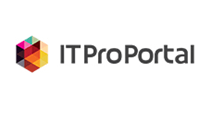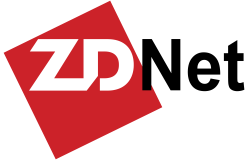
Press Coverage
Media Inquiries Contact:
Erica McShane, Vice President, Corporate Communications
pr@progress.com
Uniting Developers and Designers with Unite UX
Developer sat down with Unite UX product manager Daniel Levy to hear Progress’ plan to bridge the gap between developers and designers.
Most of us have witnessed or experienced the disconnect. The different tools used often results in a back-and-forth with constant reiterations needed. Ultimately, this wastes effort and money with a slow time-to-market.
Ipswitch WhatsUp Gold 2019 review: What’s on your network?
There are few network monitoring products that can match Ipswitch's WhatsUp Gold (WUG) for longevity and features and the latest 2019 version adds even more choice ingredients to the melting pot. First up is the new Live Activity Status Bar & Report feature which ensures support staff see critical device status alerts as they happen.
Progress CTO: Microapps Save Time, Increase Productivity
During his keynote talk at ProgressNEXT 2019 today, CTO Dmitri Tcherevik announced ‘microapps’ which promise to save time while increasing productivity.
The promise is something any sane developer would embrace. After all, as Tcherevik quips, it means increased free time for office parties.
Dmitri Tcherevik, Progress CTO: What's new, spanning form factors, and AI | ProgressNEXT 2019
Ryan sits down with Progress CTO Dmitri Tcherevik ahead of his talk at ProgressNEXT 2019 to discuss the company's latest developments in solutions like Kinvey, spanning form factors including wearables and VR/AR, and the use of AI for chatbots and more.
Ravi Chander, 407 ETR: Building a Smart Highway | ProgressNEXT 2019
Ryan sat down with Ravi Chander, Group Architect of 407 ETR, during ProgressNEXT 19 to hear how the company is building the world's smartest highway, scaling to meet the demands of its two million users, and using data to ensure users have a positive experience.
Focus on What Matters: Boosting the Productivity of Professional Developers
Low-code platforms have become popular tools for building apps quickly and lots of hype has been created around them. By passing on the keys to app development from the professional developer to the business user, they seem to be opening up new potential to fast-track app delivery. Functionalities such as point-and-click and drag-and-drop have simplified the process, empowering users with a basic understanding of coding to get involved. This might sound like the ideal scenario but reality shows it is not. Simplifying app development and involving business users might result in ending up with generalists unable to perform on either side – business or IT.
Largest Software Development Firms in Massachusetts
Progress was ranked as the 16th largest software development firm in MA out of 25 companies on BBJ’s first annual list.
When Developers Shouldn’t Trust Low-Code Platforms
The application development world is continuously changing, evidenced by the analyst community’s frequent revisions of their various categories and definitions of application development tools and platforms. The rapid evolution and consequent flux are fueled by organizations clamoring for a single platform and toolset that can help them quickly deliver omnichannel, customer-grade apps spanning desktop, web, mobile, wearables, etc.
The right low-code solution based on open standards can be invaluable in an era of “more apps, faster, that run anywhere.” That said, not all low-code solutions are created equal. Here are three red flags to watch for when evaluating a solution.
The New Language of High-Productivity Development Platforms
Each new – and not so new – technology trend brings its own language, complete with acronyms, jargon and marketing-speak. Consulting services website Connet lists more than 3,000 computer acronyms. Here we are going to focus on one of tech’s current hot topics: Low-code high-productivity application development platforms. Acronyms are flying: RMAD, RADP, LCDP, MADP, hpaPaaS and more. Some of the acronyms may be new, and marketers are spinning the terms “low-code” and “high-productivity” in new ways, but these technologies have been around. For a long time.
Progress OpenEdge adds considerable value for developers who create vital apps, and it recently released its most robust update to the platform — OpenEdge 12. While Progress has expanded its portfolio, OpenEdge development remains a priority because more than 2,100 businesses use it to develop and modernize apps essential to their success. OpenEdge 12 responds to their needs by improving scalability and continuous operations while including automatic repair features. The company says users who upgrade to the latest version can expect to see up to a 200% performance boost.
Progress Buys Ipswitch to Expand in SMB
Application development specialist Progress is paying $225 million to acquire Ipswitch Networks, best known for its network management and file transfer tools, in a bid to gain access to small and midsize business (SMB) segment.
Progress Acquires Ipswitch for $225 Million, Tops First Quarter Targets
Progress, which specializes in application development, said it will acquire Ipswitch for $225 million in cash.
Ipswitch makes data file transfer and network management software. Progress said the deal will add to non-GAAP earnings and cash flow as well as boost its small and medium-sized businesses products.
JavaScript Based Low Code Platform Emerges from Progress
Progress has revealed its strategy and approach for enabling high productivity application development. As part of this strategy, Progress announced the latest release of the Progress Kinvey platform, delivering a combination of high productivity, full developer control over the app experience, and operational efficiency for modern workloads with dynamic scale.
Identifying the MVPs in your AI deployment Strategy
Artificial Intelligence (AI) has played a critical role in business transformation strategies. Once a figment of the human imagination, it has become crucial in improving processes, enhancing employee productivity, and revolutionising the customer experience. Based on this, decision-makers are turning to their IT departments and the professionals they need to deploy AI-integrated applications.
Progress Updates Low-Code-for-Pros Kinvey Platform
Progress Software has updated its low-code Kinvey platform that -- unlike competitors that target the "business user" audience -- positions itself as a productivity tool for professional developers.
Progress said it's providing a "new form of low-code platform" that's focused on professional developers, enabling high productivity capabilities along with delivery of different apps that run natively across devices and platforms across multiple channels.
Progress Offers Low-Code-for-Pros with Kinvey
Progress puts forward another (arguably weighty) hand in the low-code game this week.
The Boston, MA-based application development firm has upped the spec on its Progress Kinvey platform with extra features.
The Progress Kinvey platform includes Kinvey Studio: a low-code visual development tool for building mobile, web and chat-based apps — and, the difference is, it doesn’t sacrifice full developer control over the application and code.
Progress Kinvey Brings More Advanced Low-Code Capabilities to Professional Developers
Low-code adoption is beginning to pick up as the demands to deliver software faster starts to weigh on businesses. Progress believes its strategy and approach for high productivity application development will have businesses pick up the pace and remove the complexity traditional offerings pose when trying to develop more advanced applications.
6 Top Challenges to Successful Data Integration
Data variety, velocity, veracity, volume and sources are among the top factors affecting whether an organization can successfully integrate disparate data.
Progress Announces Milestone Release of its App Development Platform OpenEdge
Progress its announcing a three-fold throughput performance improvement with the latest release of its application development platform. According to the company, Progress OpenEdge 12 features a 200 percent improvement in database throughput performance, responsiveness and scalability. In addition, the release comes with new advanced features and functionality to give modern apps always-on availability and enhanced agility.
Progress, a provider of application development and digital experience technologies, is releasing the latest version of Progress OpenEdge, delivering improvements in database throughput performance and more.
The 12.0 release also provides a foundation for application evolution, with advanced features and functionality that give applications the always-on availability, agility, and scale required to support modern applications.















